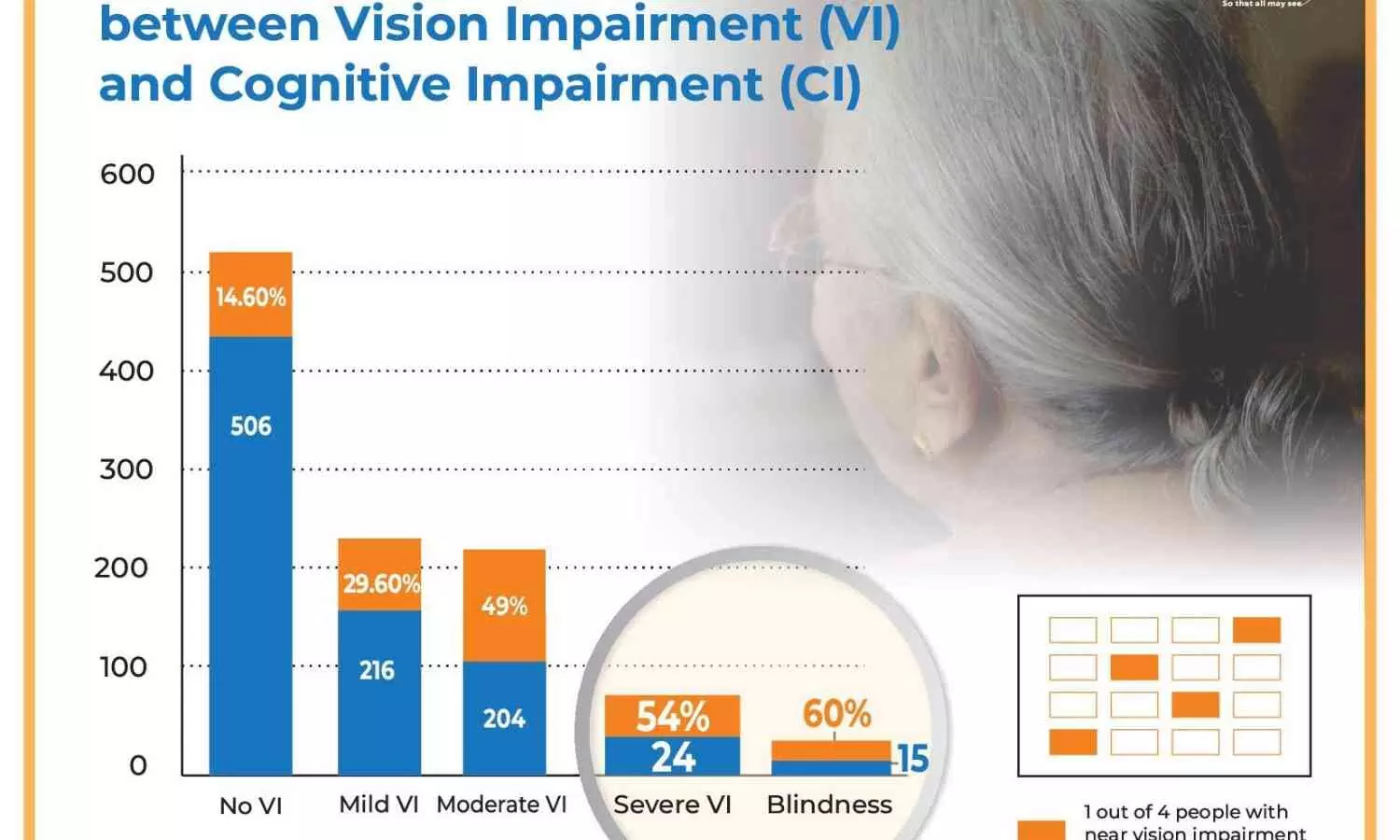Elderly Vision Loss Tied to Increased Cognitive Decline

Hyderabad: A recent study published in BMJ Open Access by public health experts from the L V Prasad Eye Institute (LVPEI) and their international collaborators highlights a significant link between cognitive impairment and vision loss in the elderly. The research reveals that one in four elderly individuals suffers from cognitive impairment, with those experiencing vision loss being four times more likely to develop cognitive issues compared to those without vision problems. The study further indicates that worse vision correlates with a higher likelihood of cognitive decline. Additionally, cognitive impairment was found in one out of every four individuals with near vision impairment. The LVPEI team emphasizes a strong association between cognitive and vision impairments among people over 60 living in aged care homes. The paper is part of the Hyderabad Ocular Morbidity in the Elderly Study (HOMES).
While less than 30% of elderly with mild vision impairment had cognitive impairment, this percentage steadily increases as vision impairment worsens. The study included 15 people with blindness and 60% of them exhibited measurable signs of cognitive decline. Similarly, mental decline also increased with age. Women consistently have a higher prevalence of cognitive impairment, and this study found that women were 2x likely to be cognitively impaired than men. Severe forms of cognitive impairment leads to dementia.
The study’s results suggest that addressing vision loss may be key to arresting dementia and other forms of cognitive decline in India’s elderly population.
“The results exhibit a strong association between vision loss and cognitive loss,” said Dr. Srinivas Marmamula, Scientist and public health researcher at LVPEI. “While more and more elderly are living in homes for aged, we have very little evidence-based policy interventions that can help improve their lives and conserve their quality of life. This paper builds a case for screening them for vision and cognitive loss. A pair of glasses or safe cataract surgery can go a long way in helping our elderly live independent and fulfilling lives in their sunset years.”
This paper is part of 16 papers published as part of the Hyderabad Ocular Morbidity in the Elderly Study (HOMES) led by Dr. Marmamula funded by Wellcome Trust/DB India Alliance. HOMES covers over 1,500 elderly participants (those 60 years old and above) who live in care homes for the aged in Hyderabad. This paper includes 965 of that set, and just over 60% of them were women. About 27% of the participants had cognitive impairment. The study included Dr Suvarna Alladi, National Institute of Mental Health and Neurosciences (NIMHANS), Bengaluru, India, Dr. David Bloom from Harvard University, Dr. David Friedman from Harvard Medical School and Dr. Joshua Ehrlich from University of Michigan in USA as co-authors.


